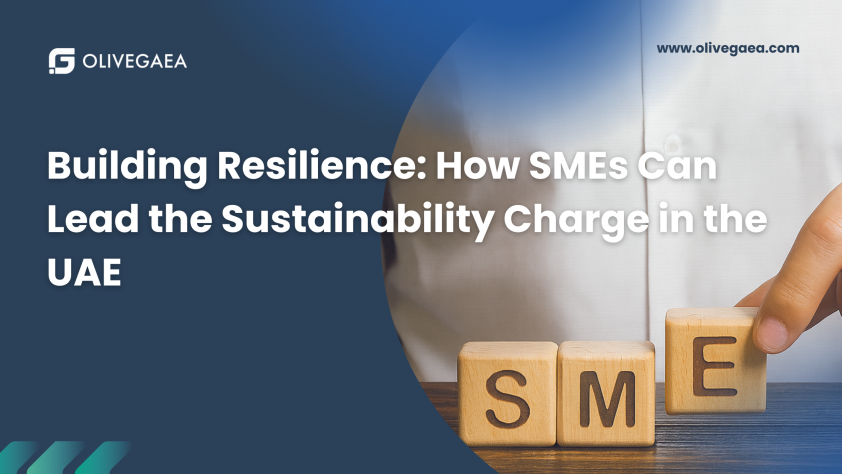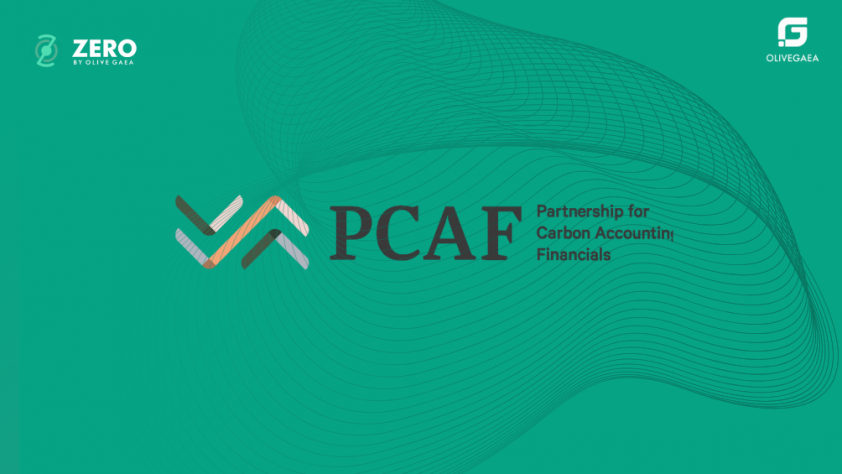By Jessica Scopacasa, Co-founder & CMO at Olive Gaea
The UAE is entering a pivotal phase in its sustainability and climate action efforts with the introduction of two significant regulatory frameworks: Federal Decree-Law No. (11) of 2024 On the Reduction of Climate Change Effects and UAE Cabinet Resolution 67 of 2024. These regulations set the stage for enhanced carbon accounting, disclosure, and decarbonization efforts across industries, compelling businesses to take immediate action.
Federal Decree-Law No. (11) of 2024 On the Reduction of Climate Change Effects establishes a structured framework for emissions reduction, requiring companies across various sectors to measure, monitor, and report their carbon footprints. This law applies to high-emission industries, including energy, manufacturing, and construction, mandating the development of clear decarbonization strategies in line with national climate goals. Compliance with this decree not only helps businesses align with UAE’s net-zero ambitions but also fosters a transparent and accountable approach to climate action.
UAE Cabinet Resolution 67 of 2024 focuses on the implementation of corporate climate disclosure regulations, ensuring that businesses integrate sustainability reporting within their operations. Organizations operating in key economic sectors are required to submit detailed reports on their carbon emissions, energy consumption, and mitigation measures. This resolution plays a critical role in standardizing climate disclosures, promoting responsible corporate governance, and laying the foundation for future carbon pricing and trading mechanisms in the UAE.
Last week, I had the opportunity to discuss this pressing topic at the Ministry of Energy and Infrastructure’s Innovation Week, where I participated in the panel discussion “UAE Net Zero in Regulations” alongside experts from government, finance, and industry. Moderated by Farah Ghanem, Head of Climate Change at Alpin, the panel shed light on the readiness of UAE businesses, the role of carbon accounting, and the evolving regulatory landscape.
As I shared during the panel, UAE companies are at varying levels of preparedness. Some organizations have proactively set emissions baselines and developed decarbonization roadmaps aligned with the UAE’s Net Zero vision.
Others, however, have taken a ‘wait-and-see’ approach and are now seeking clarity on where to begin. While the regulatory timeline is short, the good news is that businesses no longer need to struggle with lengthy, complex reporting processes.
Technology-driven platforms like Zero by Olive Gaea play a crucial role in advancing both national and corporate climate goals. From a government perspective, these platforms provide a comprehensive and credible view of the national carbon inventory, ensuring accurate emissions tracking across industries. This data-driven approach is essential in shaping effective decarbonization policies and regulatory frameworks.
For businesses, Zero offers a fast, accurate, and cost-effective solution for meeting regulatory compliance. By automating emissions tracking and reporting, it eliminates the need for extensive in-house expertise, reducing both time and financial burdens while ensuring transparency and alignment with UAE’s evolving climate regulations.**
Moreover, from a government perspective, leveraging credible, science-based carbon accounting will strengthen the UAE’s national carbon inventory, ultimately shaping future decarbonization policies and climate strategies.
Additional Insights from the Panel Discussion
Several key takeaways emerged from the discussion:
- Carbon Disclosure is the First Step: Majd Fayyad, DSM Strategy & Policy Lead at Dubai Supreme Council of Energy, emphasized that transparency in carbon emissions measurement is the foundation for effective climate action. Without accurate data, businesses cannot make informed decisions on carbon pricing, trading, or broader decarbonization strategies.
- Energy Transition is Well Underway: Shuvendu Bose, Energy Expert at MOEI, provided updates on the ministry’s ambitious plans to scale up renewable energy capacity, which will play a crucial role in decarbonizing the UAE’s grid in the coming years.
- Public Sector Preparedness: Divya Janardhanan, Principal Specialist-Corporate Risks and Business Continuity at Dubai Municipality, outlined the municipality’s proactive efforts to align with Cabinet Resolution 67 of 2024 and ensure regulatory compliance within its operations.
- Technology as a Climate Solution: Rick Fox, Co-Founder and CEO of PARTANNA, highlighted how innovation can turn sustainability challenges into opportunities. His company’s carbon-negative cement not only helps decarbonize the construction sector but also utilizes brine from desalination plants, solving two environmental problems at once. Innovation remains our best tool in addressing climate challenges and transforming liabilities into opportunities.
- The Role of Financial Institutions: Vijay Bains, Group Chief Sustainability Officer at Emirates NBD, underscored the critical role of banks in financing the transition to a low-carbon economy through sustainable lending, investment strategies, and financed emissions management.
How Olive Gaea Can Help
With the introduction of these new regulations, businesses across the UAE must act quickly to ensure compliance. At Olive Gaea, we provide cutting-edge carbon management solutions through our AI-powered platform, Zero. Designed to streamline emissions tracking, reporting, and reduction strategies, Zero enables organizations to meet regulatory requirements efficiently—without requiring in-house expertise or lengthy consulting engagements.
Looking Ahead
As businesses navigate these regulatory shifts, the focus should not just be on compliance but on leveraging sustainability as a strategic advantage. Those who take action now will not only mitigate risks but also position themselves as leaders in the region’s transition to a net-zero economy.
The UAE’s ambitious climate goals offer a unique opportunity for businesses to innovate, collaborate, and drive meaningful impact. With the right tools, expertise, and commitment, organizations can turn these regulatory requirements into a competitive edge—ensuring long-term resilience and success in a low-carbon future.

